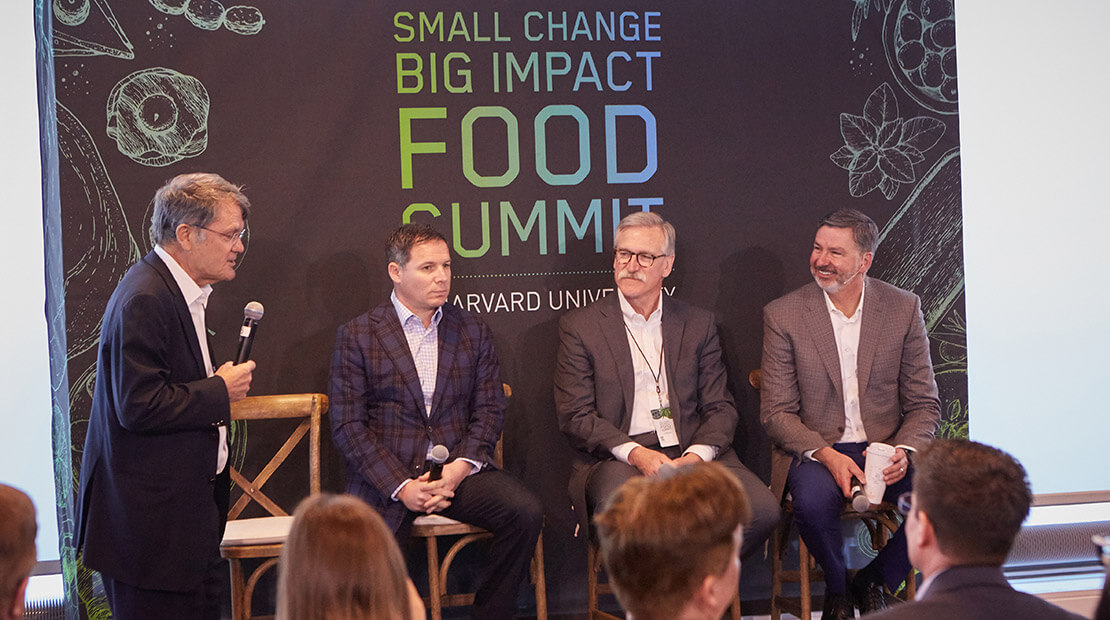Events
Tackling Tough Topics at Small Change, Big Impact Food Summit at Harvard

The Boston Globe
The event was hosted by Harvard University Dining Services and Hormel Foods.
The problem of food insecurity was a centerpiece of the event, and Greater Boston Food Bank chief operating officer Carol Tienken spoke candidly about the issues facing Massachusetts and the country.
“We’re not getting ahead of this problem,” she said. Roughly one in eight people in the United States is food insecure, she said, whereas in Massachusetts, “we have a tongue-in-cheek bragging point — we’re one in 11,” she said. The organization’s goal is to meet all of the needs of the food insecure community by 2028. People who are food insecure are unsure if they will have food or be able to obtain it on a given day…
Happily, there were also some answers. On April 3, several groups competed in an Impact Challenge, where groups presented ideas for promoting positive change in the food system. Hormel provided $16,000 in grant money to winners.
The Cambridge Public Schools Food & Nutrition Department received $6,000 for a food vacuum sealer. Sealed meals utilizing leftovers could be served at their monthly family food banks and for a weekend backpack program.
“The food they’re serving in Cambridge — fresh fruits and vegetables — is so much different than the typical chicken nuggets,” said Hormel president and CEO Jim Snee, who provided the Summit’s keynote speech. Tufts University’s New Entry Food Hub also received $5,000 to support a program to train beginning and immigrant farmers; their produce would be distributed to 500 food insecure individuals.
“There’s a negative perception of big food, and we’re adamant about telling our story,” said Snee. “We have the resources and human capital. We can do a lot of great things, and we don’t want to do it in isolation.”